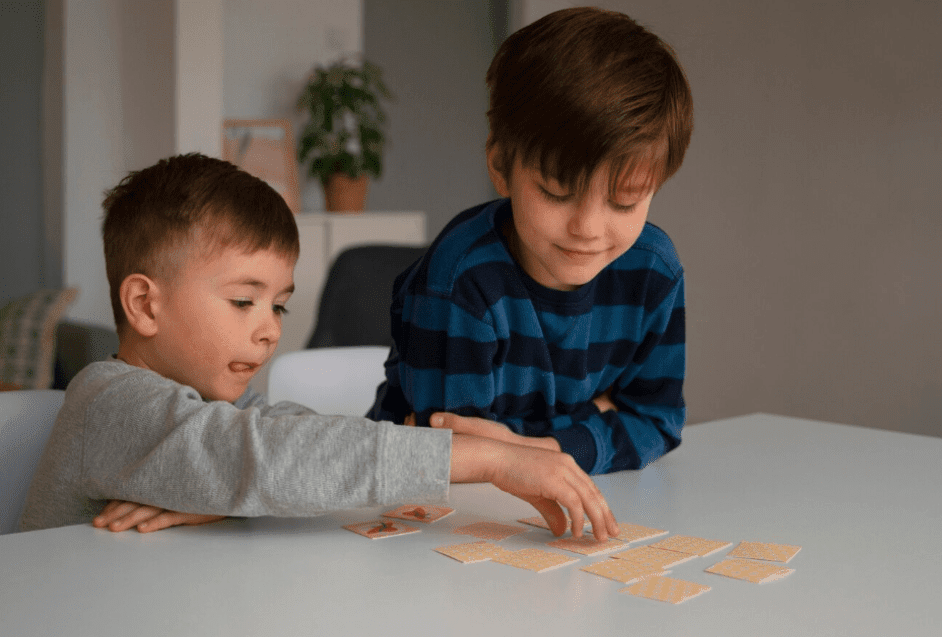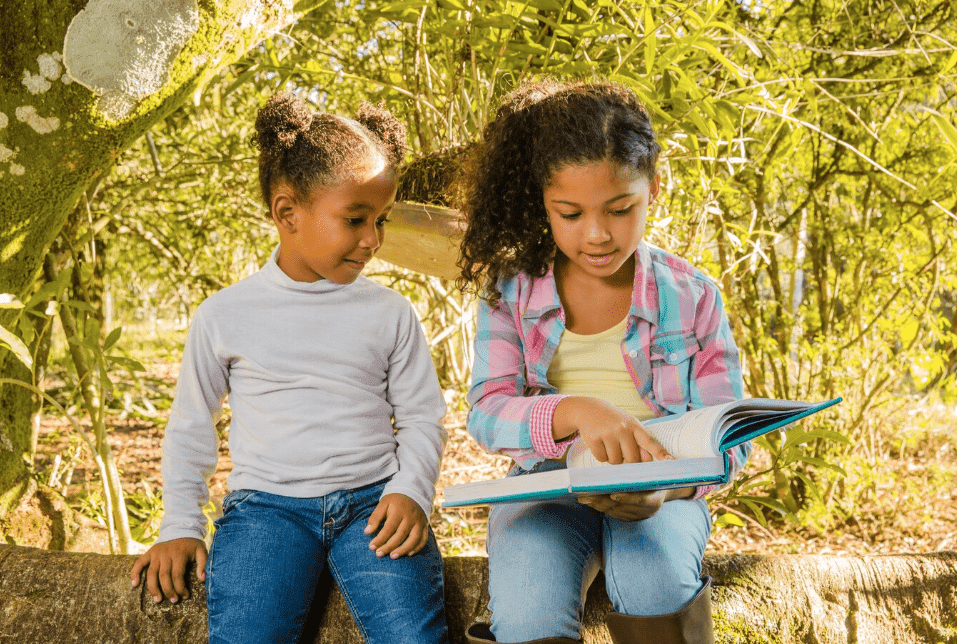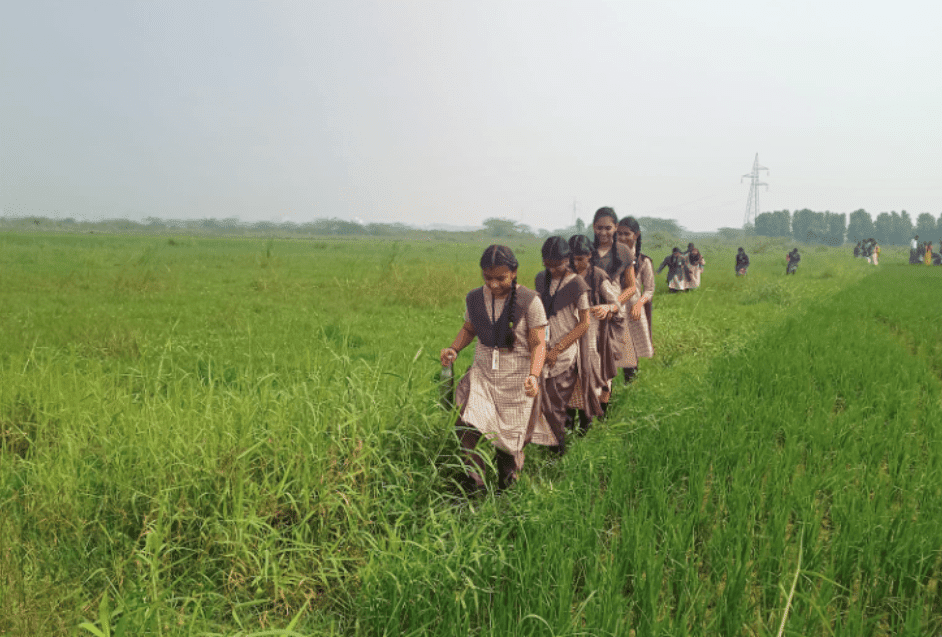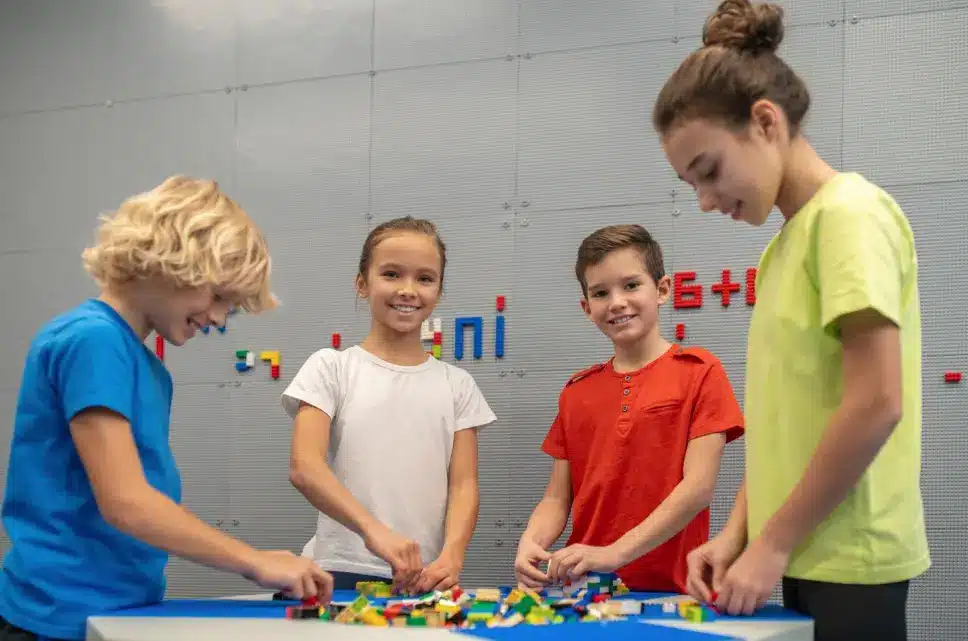In a world that’s constantly evolving, helping kids develop essential life skills is key to their future success and happiness. As parents, teachers, or guardians, it’s our job to make sure children learn these valuable skills. Teaching kids life skills not only helps them grow but also gives them the confidence to handle challenges they’ll face in life. Here are 15 simple life skills activities that are great for kids & students in pre-primary, primary, and high schools.
Important Life Skills For Kids to Learn
Teaching essential life skills to children sets the foundation for their future success and independence. Engaging in Life Skills Activities for kids helps them develop problem-solving abilities, effective communication, and social awareness. These activities boost their confidence and get them ready to face everyday challenges.
1. Communication: Sharing Thoughts and Listening
Encouraging open communication in children is fundamental. Engage them in discussions where they can express thoughts and feelings freely. Activities like role-playing or storytelling sessions stimulate their ability to articulate ideas effectively. These practices foster confidence in self-expression and lay the groundwork for strong interpersonal relationships in the future.

2. Teamwork: Working Well with Others
Teamwork is an essential life skill that goes beyond school projects. Engaging in group activities, such as building puzzles or participating in team sports, teaches children the importance of cooperation and working together towards a shared goal. It nurtures empathy, enhances social skills, and instills the understanding that collective efforts often yield better results than individual endeavors.
3. Problem-Solving: Tackling Challenges with a Plan
Introducing puzzles, riddles, or brain teasers to children encourages them to think critically and are considered among important life skills activities for kindergarten. This fosters a problem-solving mindset where they learn to brainstorm solutions, evaluate different options, and develop logical reasoning skills. Problem-solving activities enable children to approach challenges with confidence and creativity.

4. Decision-Making: Making Choices and Owning Them
Offering children choices in their daily routines, whether in meal planning or choosing activities, empowers them to make decisions. This practice instills a sense of responsibility and autonomy from an early age. It helps children learn the consequences of their decisions and develop essential decision-making skills crucial in various aspects of life.
5. Managing Time: Getting Things Done on Time
Creating visual schedules or routine charts aids children in understanding the concept of time and managing tasks efficiently. Teaching them to prioritize tasks and allocate time for study, play, and rest instills discipline and enhances productivity. Time management skills developed in childhood pave the way for a more organized and balanced life in adulthood.

Must read: Time Management Activities for High School Students
6. Resilience and Adaptability: Coping with Change
Introducing activities that require adapting to change teaches children the value of flexibility and resilience. When plans change unexpectedly due to weather or unforeseen circumstances, it provides an opportunity to adapt and remain composed. These experiences nurture adaptability, essential for navigating life’s unpredictable situations.
7. Money Management: Learning to Save and Spend
Using play money as a tool to teach financial concepts helps children understand the basics of budgeting, saving, and distinguishing between needs and wants. This early exposure to financial literacy lays the foundation for responsible money management habits in the future.
8. Basic Cooking: Independence in the Kitchen
Involving children in simple cooking tasks like measuring ingredients or mixing not only teaches them basic culinary skills but also promotes independence and responsibility. These activities instill confidence in their abilities and encourage healthy eating habits.

9. Personal Hygiene: Staying Clean and Healthy
Demonstrating and explaining the importance of maintaining personal hygiene, including brushing teeth, washing hands properly, and bathing regularly, helps children understand the significance of cleanliness and health maintenance.
10. Being Kind: Understanding and Caring for Others
Empathy involves recognizing and understanding the emotions of others. Encourage activities like reading diverse stories, volunteering, role-playing, discussing emotions, and promoting kindness to develop empathy and compassion. These practices create empathetic individuals capable of understanding various perspectives and fostering meaningful relationships.

11. Conflict Resolution: Handling Disagreements
Teaching children to express their feelings calmly, actively listen, find peaceful solutions, and compromise when necessary cultivates effective conflict resolution skills. These skills are vital in maintaining healthy relationships and navigating conflicts in a constructive manner.
12. First Aid Basics: Handling Small Emergencies
Introducing simple first aid practices like applying a band-aid or treating minor cuts familiarizes children with basic emergency procedures. It teaches them when and how to seek help, potentially being life-saving knowledge in critical situations.

13. Technology Use: Staying Safe Online
Guiding children on safe and responsible use of technology, teaching them to navigate age-appropriate websites or apps, and understanding online safety measures are imperative in today’s digital age. These skills ensure children can use technology as a tool while being aware of its potential risks.
14. Environmental Responsibility: Caring for Nature
Engaging in activities promoting environmental responsibility, such as planting trees, recycling, or discussing resource conservation, raises awareness about the importance of protecting the environment. These activities instill a sense of responsibility towards the planet.

15. Critical Thinking: Asking Questions and Exploring Ideas
Encouraging children to ask questions, explore new ideas, and think creatively nurtures their curiosity and problem-solving abilities. These critical thinking skills are essential for adaptability and success in a rapidly changing world.
Each of these life skills activities for kids plays a pivotal role in shaping a well-rounded individual. When nurtured collectively, they empower children with the tools necessary to thrive personally, academically, and socially in their future endeavors.
The importance of teaching these life skills activities to kids cannot be overstated. Schools in Kavali, from pre-primary to high schools, play a vital role in supplementing these teachings. It’s essential for educators and parents to collaborate in integrating these skills into the curriculum and daily routines.
For parents seeking schools in Tirupati that emphasize holistic development through a focus on life skills education, several institutions stand out. Dr. Kishore’s Ratnam Schools, known for its comprehensive approach to education, prioritizes the nurturing of essential life skills alongside academic excellence. These schools recognize that preparing children for the future goes beyond textbooks and standardized tests.
Conclusion
Instilling life skills in children from a young age lays a strong foundation for their personal, academic, and professional growth. Parents, teachers, and schools in Kavali must work hand in hand to impart these vital skills, shaping well-rounded individuals ready to tackle life’s challenges with confidence and competence.
Remember, the journey of learning life skills is ongoing, and the support and guidance provided by parents and educators play a pivotal role in shaping the future leaders of tomorrow. By fostering these life skills activities in our children, we equip them with the tools necessary to navigate the complexities of the world with resilience, empathy, and confidence.


